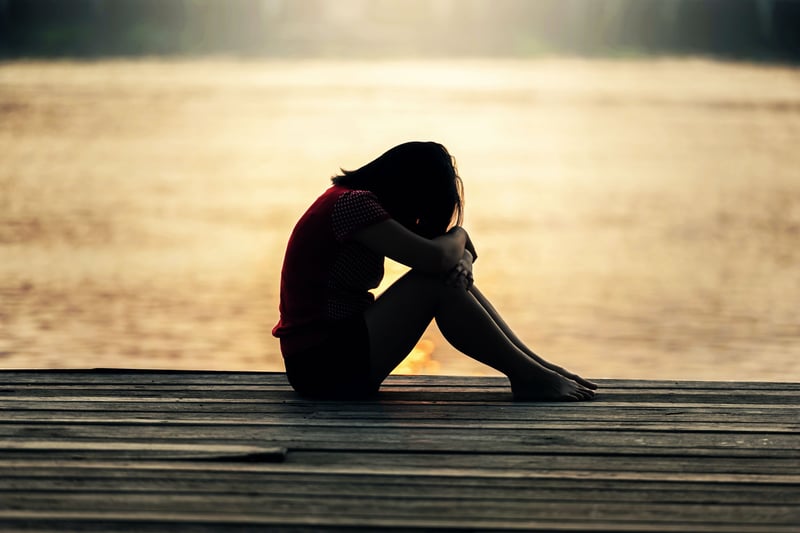
My (primary aged) children frequently claim they're 'bullied' - even by each other:
"He's bullying me, he won't let me use the bathroom."
"I got bullied by some Year 5 girls today - they told me I wasn't allowed to play on the monkey bars."
"Cooper was so rough - he's such a bully!"
It seems the word 'bully' is substituted any time someone is mean, disagrees with them or behaves in a way they don't like. Much as my kids might get annoyed or upset by such behaviour, I wouldn't classify these isolated incidents as 'bullying'. So let's be clear from the outset ...
Bullying is:
- Repetitive - not just once off bad behaviour
- Intentional
- Causes harm to another child or is used to control them by
- verbal harassment
- physical assault
- social exclusion
- defamation, distributing images, rumour milling etc
and bullying has serious repercussions. Children bullied at the age of eight are more likely to experience psychological problems in early adulthood, according to research published in Archives of General Psychiatry.
Bullying can lead to:
- anxiety
- poor school performance
- low self-esteem
- depression
- insecurity
An international survey across 40 countries found that Australian primary schools had one of the highest rates of bullying in the world. (Mullis, Martin, & Foy, 2008).
According to the Australian Covert Bullying Prevalence Study (2009), one in four Year 4 to Year 9 Australian students (27%) reported being bullied at least every few weeks. Frequent school bullying was highest among Year 5 (32%) and Year 8 (29%) students.
So what should parents do if their child tells them they're being bullied?
1. Be a good listener
Try not to be dismissive of what your child has to say. Take the time to really listen to them, whatever your initial thoughts or opinions. This means eye contact (no 'Hmm ... yes ...hmm ...' as you catch up on your Instagram feed), no butting in or talking over your child. Hear them out and listen to everything they have to say, no matter how garbled or confused their account, before you speak. This reassures your child that they matter and that you will take them seriously.
2. Take a deep breath
Discovering that your child has been bullied and is hurting can be distressing for any parent. But it is important to remain calm and strong. Try not to pass any negative emotions on to your child (eg anger, worry). They need to feel safe and secure with you, which they won't do if you lose control of your emotions.
3. Establish the Facts
You need to clarify exactly what is going on. Keep things simple and ask the '4 Ws':
-
What?
What form does the bullying take? Is it physical, verbal, defamatory? Is it in person or online? -
Who?
The identity of the bully/bullies. Or is it anonymous (eg online)? -
Where?
In the playground? The school bathrooms? Online? At a sports club? Multiple locations? -
When?
- Is the a particular time of day the bullying takes place (eg morning break, between maths and arts class?
- Is there a specific situation when this occurs (eg only when friends aren't around, getting changed for sport)?
- What is the frequency of the bullying (eg every day, a couple of times a week, only in PE)? If it's only happened once, it's not bullying (not yet, at least), just bad behaviour.
Repeat your child's responses back to them to be sure you have understood them correctly. It's a good idea to write them down so that you have a record of their account to refer back to; this document will be useful should you escalate matters to your child's school.
4. Reassure them
Your child may be feeling upset, hurt, scared and/or angry. Acknowledge these emotions - don't belittle them. Victims of bullying often feel overwhelmed and have trouble seeing things in perspective. Build up their confidence. Tell them that you will help them sort this out and that they are strong enough to deal with this. Speak positively.
5. Discuss coping strategies
Talk through some approaches your child might take to deal with the bullying. These might include:
- avoiding certain situations
- finding friends / not being alone
- dealing with bullies, eg
- act brave or indifferent
- ignore them
- walk away
- give clear instructions to stop
- use a loud voice to draw attention to the bully
- telling an adult
- talking about it to other children and adults
6. Contact your child's school
(.. or sports club, Sunday School, dance school - wherever the bullying is taking place.)
Resist contacting the parents of the bully directly and use the appropriate channels instead. Most schools have bullying policies and programs in place. Make an appointment to see your child's teacher and find out what they are. Take any notes you have made and find out what support they can give you. If your school has a chaplain, speak to them as well.
7. Build a support network
If your child struggles to make friends or has few of them, find ways to help them broaden their friendship groups, eg through playdates, shared interests etc. Having other trusted adults they can talk to will also be of benefit to them - particularly for older children.
8. Stay on top of it
Keep talking to your child to find out if/how the situation is improving. Ask them to rate the scale of the bullying (or their anxiety) a scale of 1 to 10. Is there any change? In which direction?
Diarise any subsequent incidents so that you have a dated record of events. Better still, get your child to log/document instances of bullying and how they coped with it.
Keep communication channels open with your child's school. Follow-up your meeting with your child's teacher(s). Find out what steps have been taken to help and support your child.
On a positive note, there is evidence that many people who have experienced bullying as a child end up more resilient and resourceful as a result. They have had to work out how to overcome and deal with these stressful situations, giving them valuable skills for their adult life. Many famous and successful people report that they were bullied as a child, including Michael Phelps, Bill Clinton, Sandra Bullock, Emma Watson, Chris Rock and even Prince Harry!
However, long-term bullying can have a damaging effect that extends well into adult life, so it needs to be taken seriously.










